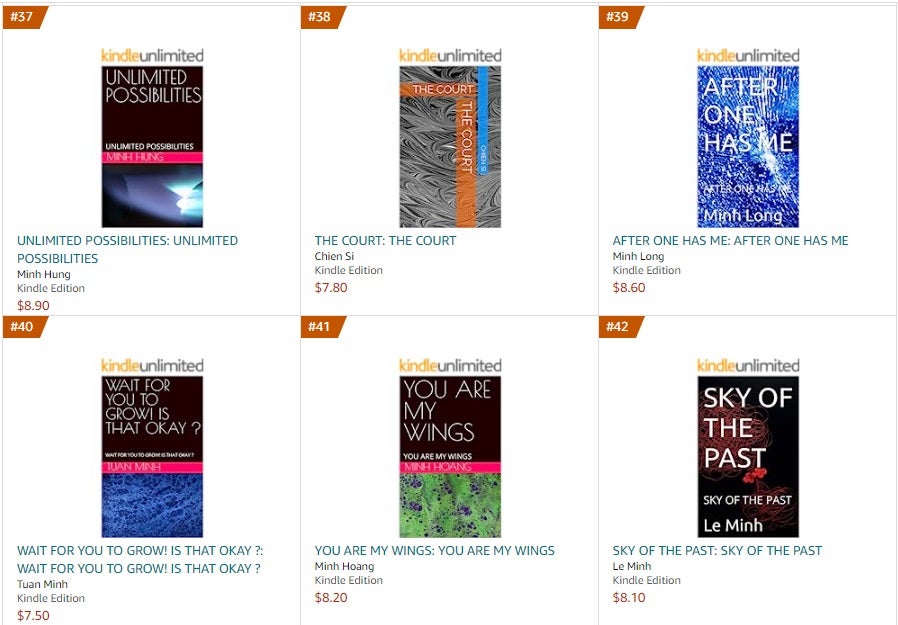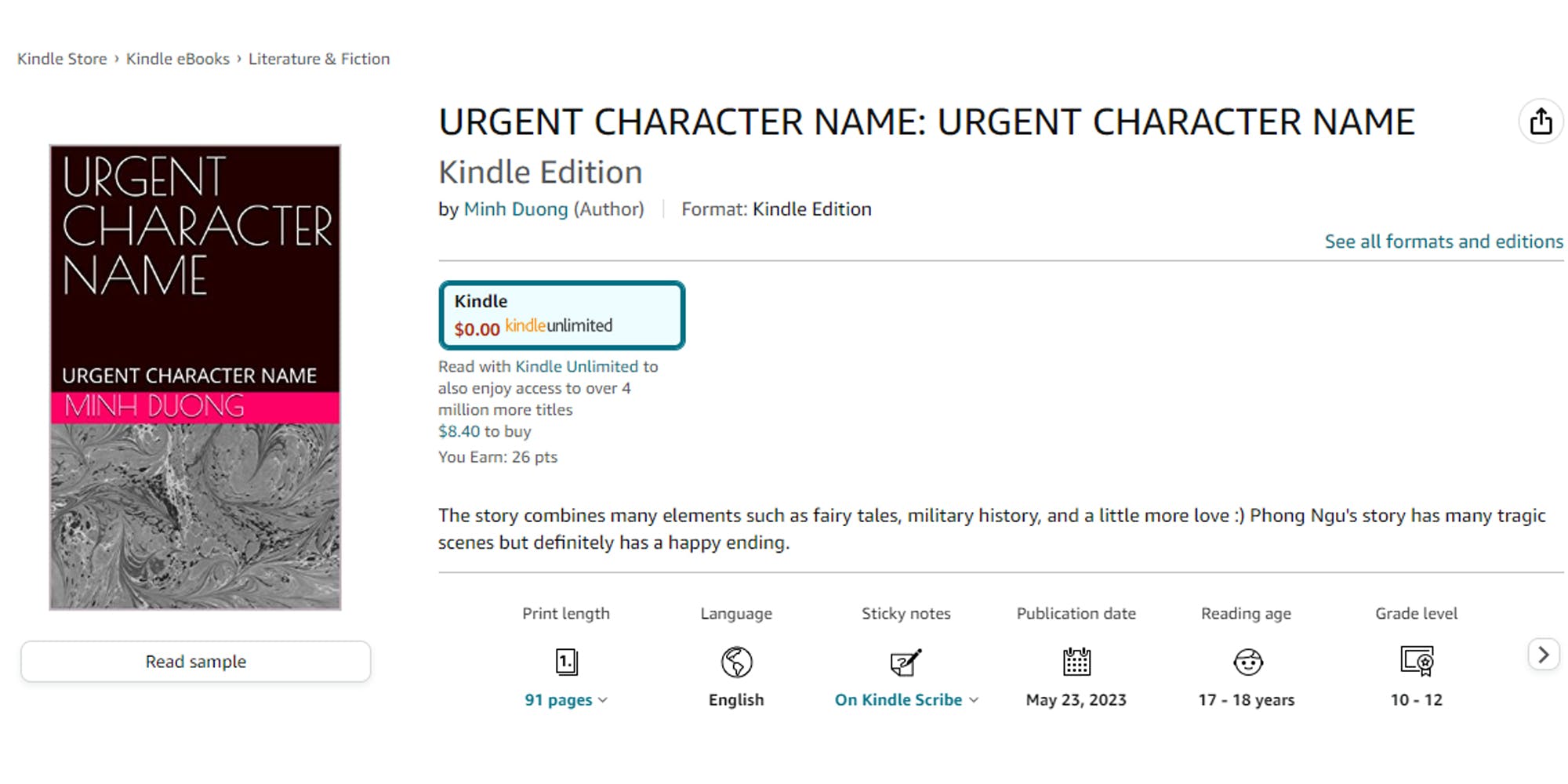Designed to “write an entire book for you in minutes” and then export it straight to the Kindle store, the AI novel generator gpt-author attracted immediate backlash when it was launched last week.
Not because authors were worried about being rendered obsolete by AI, but because they predicted this technology could overwhelm the ebook market with spam.
It looks like that’s already happening. ChatGPT ebooks have already been around for a while, but this week several authors raised the alarm about AI-generated content appearing on Kindle’s bestseller charts. Many of these ebooks flew under the radar for a couple of months but inexplicably gained traction in the past few days, sparking accusations of bot-farming.
These AI-looking books are easy to spot, featuring bland covers with no relation to the genre at hand, and profiles with zero reviews and minimal plot summaries. For some reason, most are listed under Vietnamese author names, although there’s little evidence that these authors are real people.
Earlier this week, the top 100 bestsellers for contemporary teen romance included several seemingly AI-generated books. Those titles have since dropped off of Kindle Unlimited’s bestseller list, but they’re still available on the site, ranked between 100 and 300 in the genre.
Meanwhile, fake-looking ebooks are still going strong in other subcategories like military action fiction, Hispanic American fiction, and short two-hour reads, where you’ll find clusters of spam like this on the Kindle Unlimited bestseller lists:

Of course, this invites a couple of obvious questions: Who is buying these books, and are they actually readable?
Why AI-generated books are charting on Kindle
Based on the sample excerpts for these ebooks, they’re formatted like normal novels with characters, dialogue, and descriptive passages. Many resemble wuxia or xianxia fiction, which is popular in the East Asian webnovel market. However, the text itself is pretty incoherent, and several books share identical plot summaries.
If they’re not AI-generated then they’re low-quality translations, imported en masse with no attempt to package them like normal books.
Bearing all the hallmarks of spam content, these ebooks are messing with the Kindle ecosystem—and their “readers” are probably bots. Since they’re mostly climbing the charts for “free” Kindle Unlimited titles, AI ebooks can earn money through subscriber pageviews rather than outright purchases.
This situation marks a real danger to the livelihoods of working authors. If the ebook market is flooded with spam, then it’s harder for readers to find real books. It’s already messing with Kindle’s genre categories, creating even more roadblocks for self-published writers to cultivate an audience.
The Daily Dot has reached out to Amazon and Kindle for comment.
Sign up to receive the Daily Dot’s Internet Insider newsletter for urgent news from the frontline of online.
Source: https://www.dailydot.com/unclick/amazon-kindle-ai-ebooks-spam/